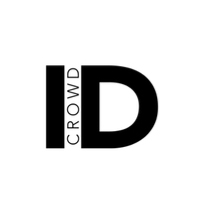At the basis of all successful commerce is trust. Trust is the oil that makes transactions happen, without it deals are delayed or don’t ever happen. But how do you prove who someone is and how can you assure that a person is the true owner of the identity they claim to be.
The way we prove who we are to others is through identity trust; we do this all the time in face to face interactions. It might involve checking documents including passports or utility bills to assure those individuals we are dealing with are really who they say they are.
Digital Identity is a way of achieving this same objective for an online transaction. This might be because the organisation that you are dealing with needs to be sure of your identity to comply with regulations (such as age restrictions or anti money laundering) or to mitigate against the risk of somebody impersonating you to gain access to your assets such as your bank account, cryptocurrency, benefits, pension etc.
Online Identity fraudsters range from opportunists to organised criminal gangs. There is an active online marketplace for identity documents on the dark web that help them either invent identities (synthetics) or take over identities (masquerading) for fraudulent purposes. Stolen personal identifiable information (PII) including passport details, dates of birth etc. are obtained from individual cyber attacks (malware) through to mass breaches of those organisations holding such information.
It is important that the organisations relying on digital identities adopt a robust set of measures to determine whether an individual is who they say they are. It is straightforward for them to say they checked certain documents, but the strength of this evidence is important; for instance: How robust was the issuance process? Does the evidence contain any security features to make sure it is not a counterfeit? Is there a source that can be checked to determine the evidence is valid and hasn’t been revoked (such as when it was reported lost or stolen)? Can the people checking the documents detect falsified or invalid documents?
A set of digital identity standards has been developed to assist those organisations undertaking the checks, which allow the types of evidence and the methods of checking them to be graded to determine the strength of the resulting assured digital identity. The key benefits of such standards are:
- Allows organisations that consume digital identities to be sure that the asserted digital identity is of sufficient strength and quality to mitigate the risks associated with their services
- Creates a standards based ecosystem for buyers and sellers of digital identity.
- Allows regulators to set their own compliance requirements against specific levels of identity assurance in line with recognised standards.
- Allows users to re-use their standards based digital identities across multiple consumers of digital identity both in the public and private sector
- Allows interoperability across borders between national but equivalent standards
- Allows users to transact with overseas businesses that will accept their locally created digital identity, for instance using a foreign gambling site or opening a bank account abroad
- Reduces friction in the channel over time, as the user is required to verify once only and then in the future can simply present their existing digital identity, rather than go through the verification steps with each new consuming organisation.
ID Crowd is driven by a group of internationally recognised experts who have hands on experience of creating national and international identity schemes as well as contributing to global identity standards as published by ISO, NIST, and the UK Cabinet Office. Our expertise with digital identity standards and our focus on the needs of service providers for the appropriate application of digital identity helps businesses gain the maximum benefit from the changing identity landscape.
If you wish to discuss how standards based digital identity could bring benefits to your organisation including better compliance, greater customer reach, reduced exposure to fraud, competitive advantages, streamlined secure on-boarding processes and protect your customers and their assets, then please contact us.
